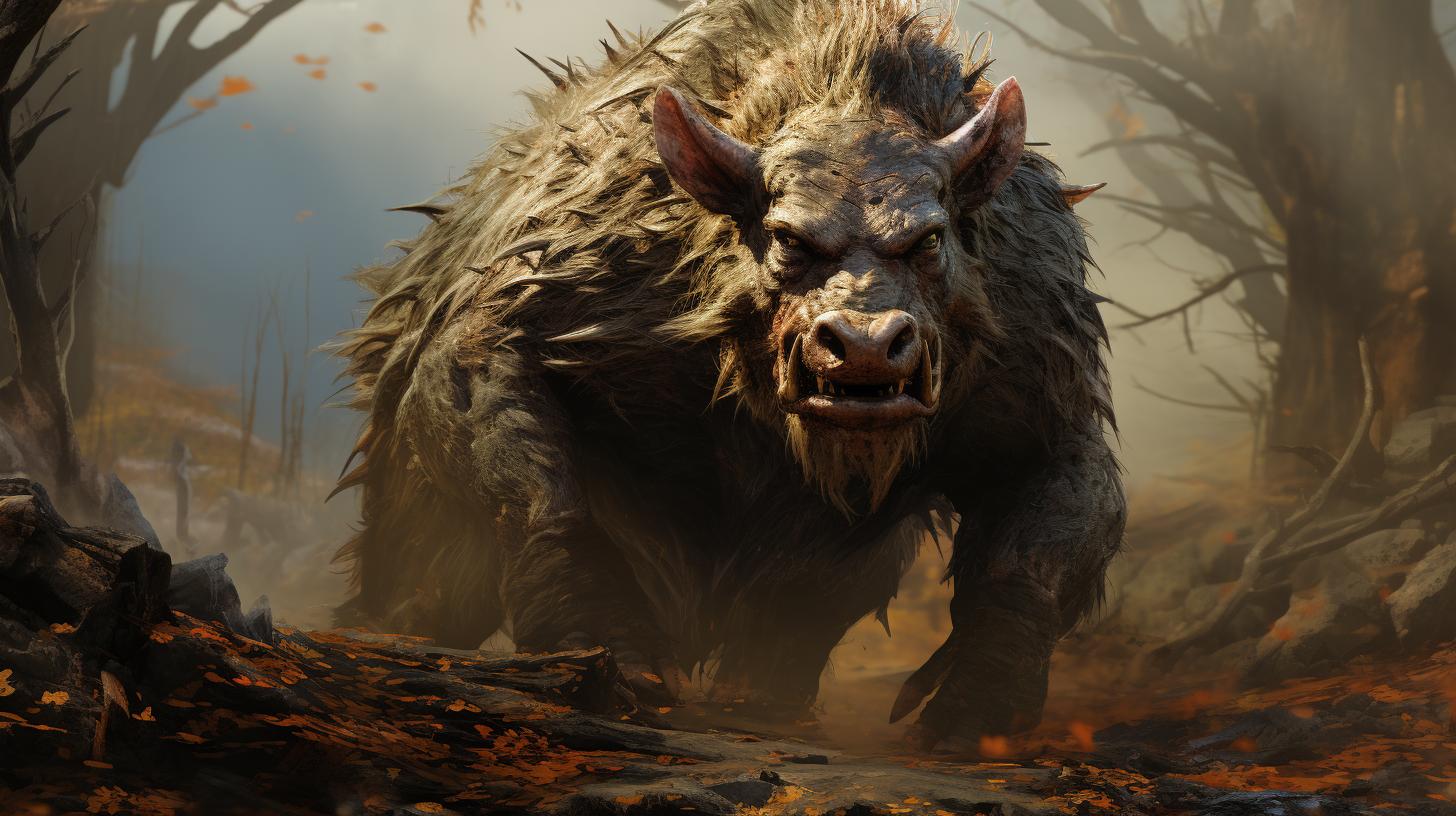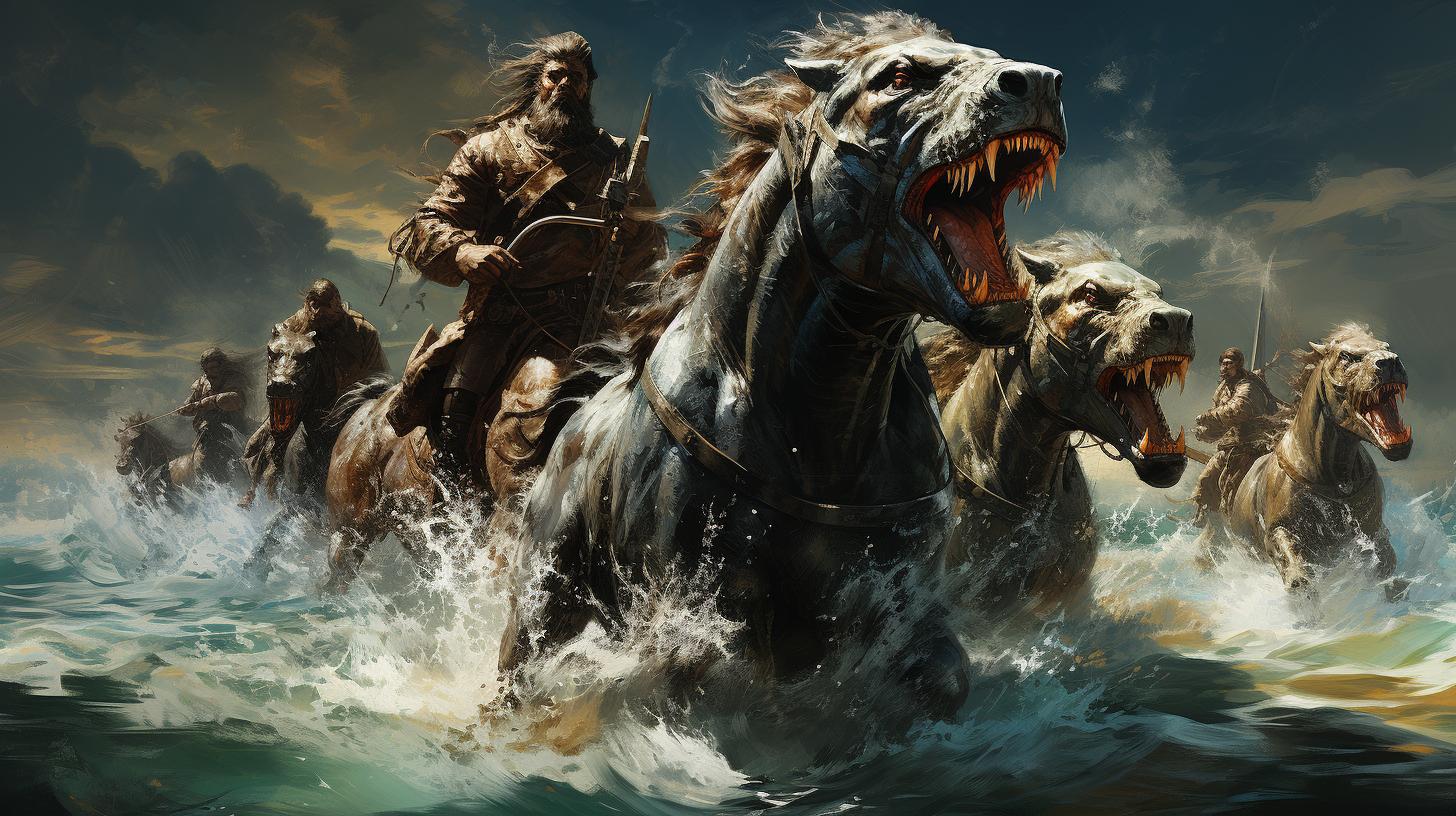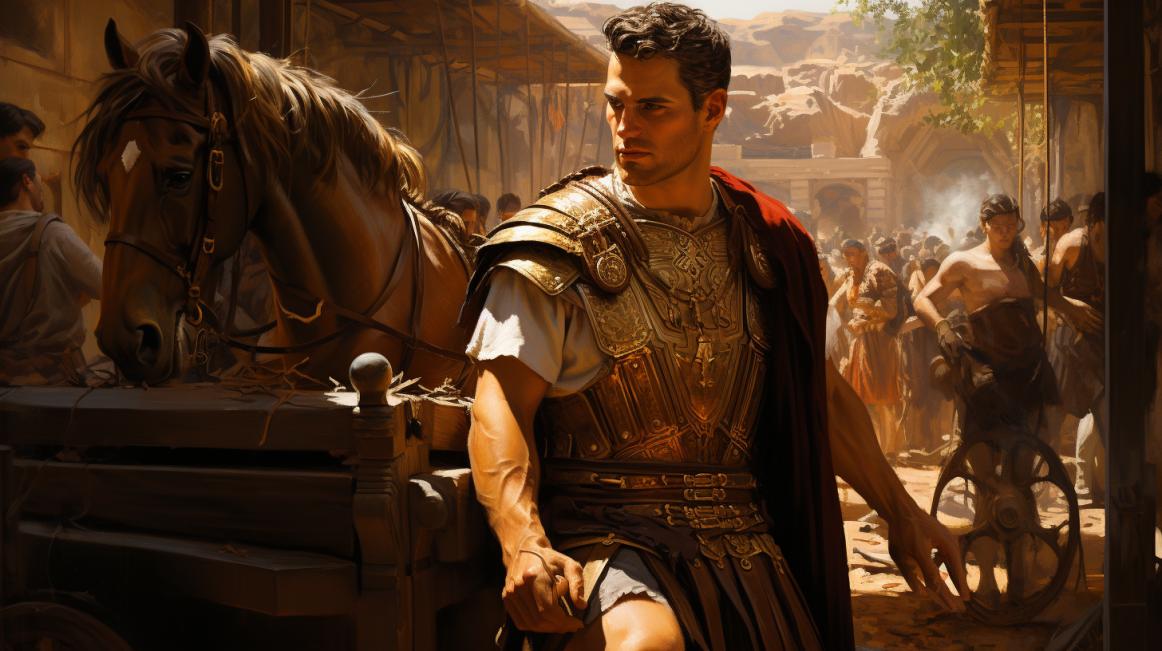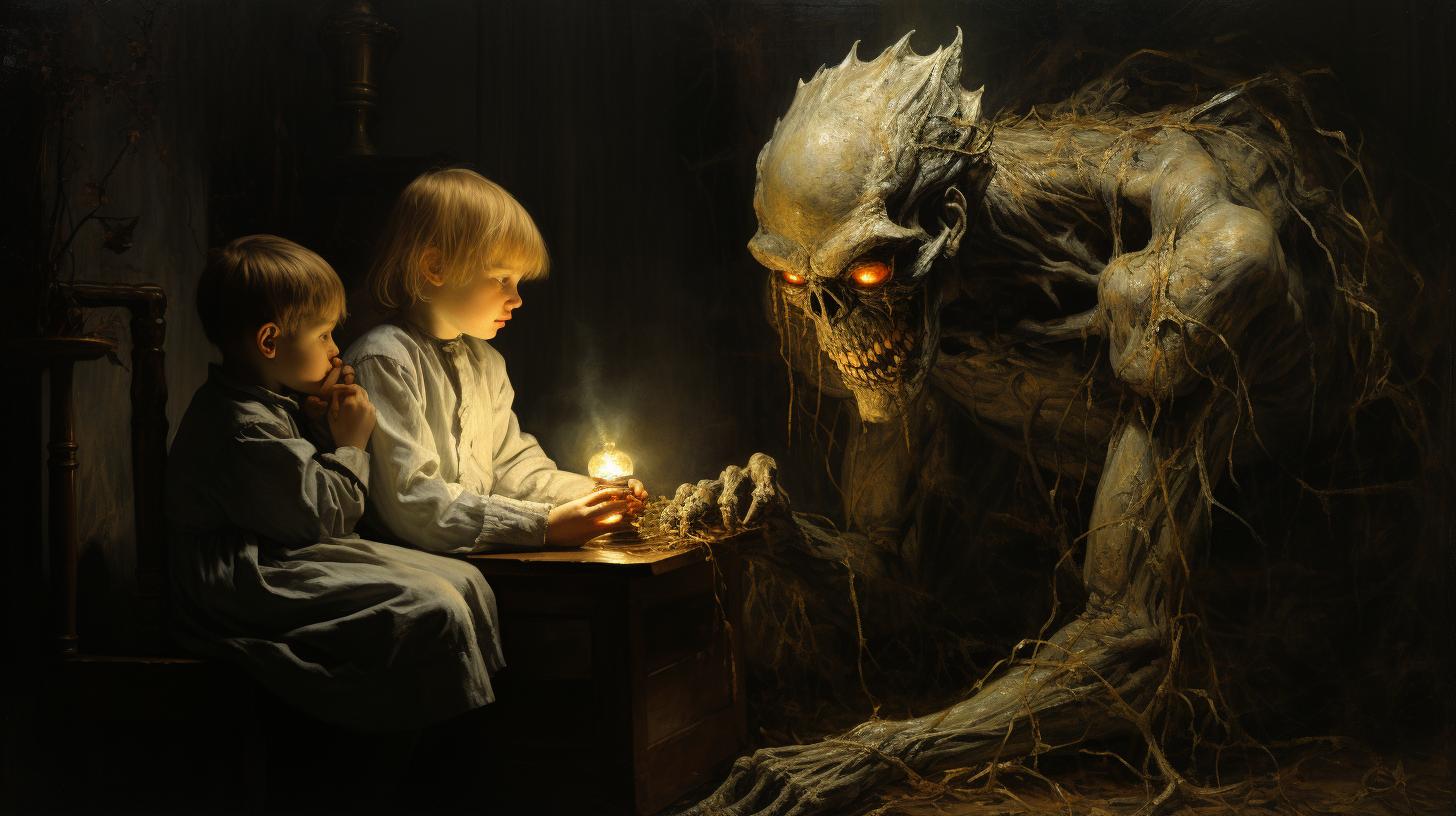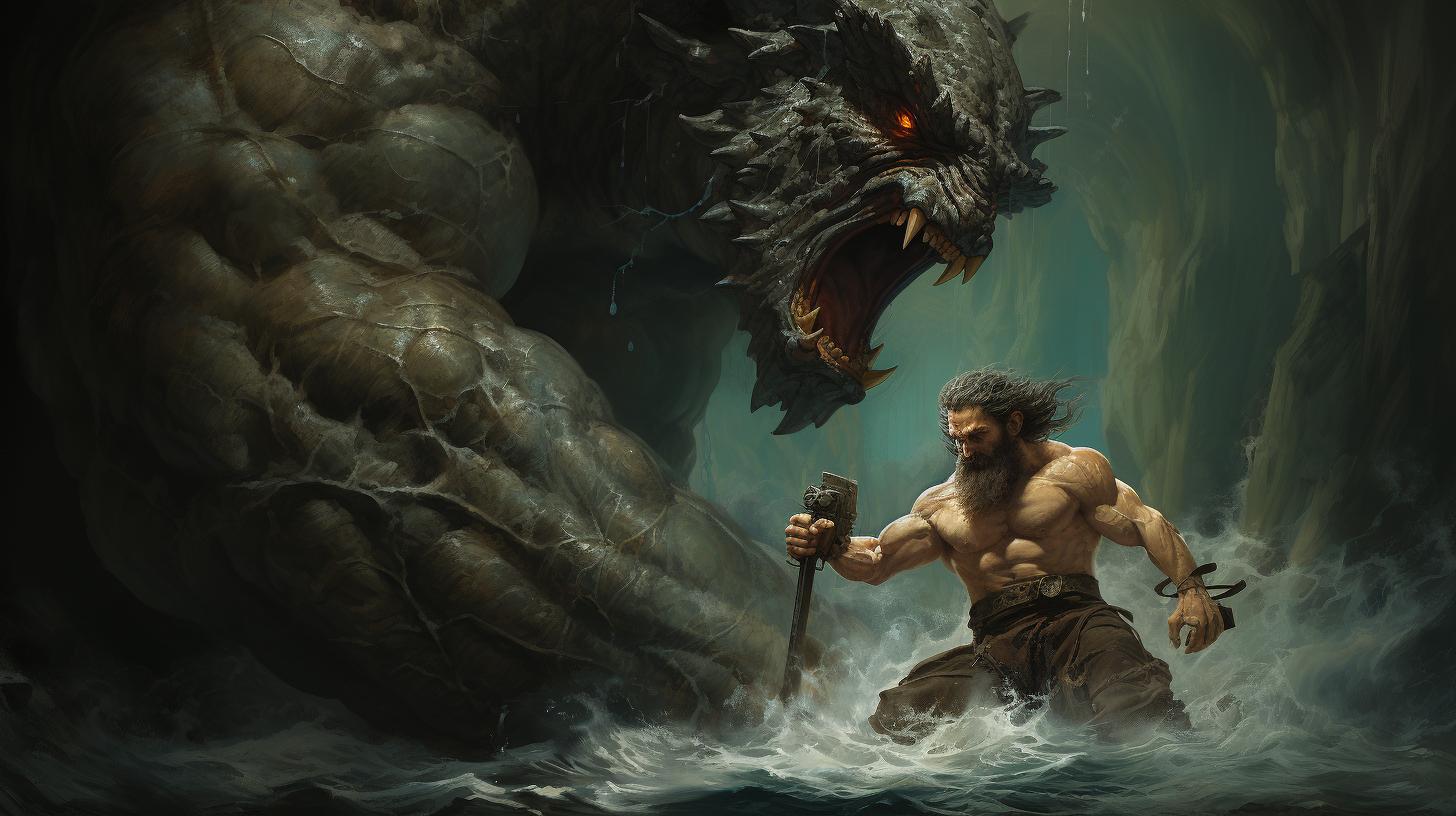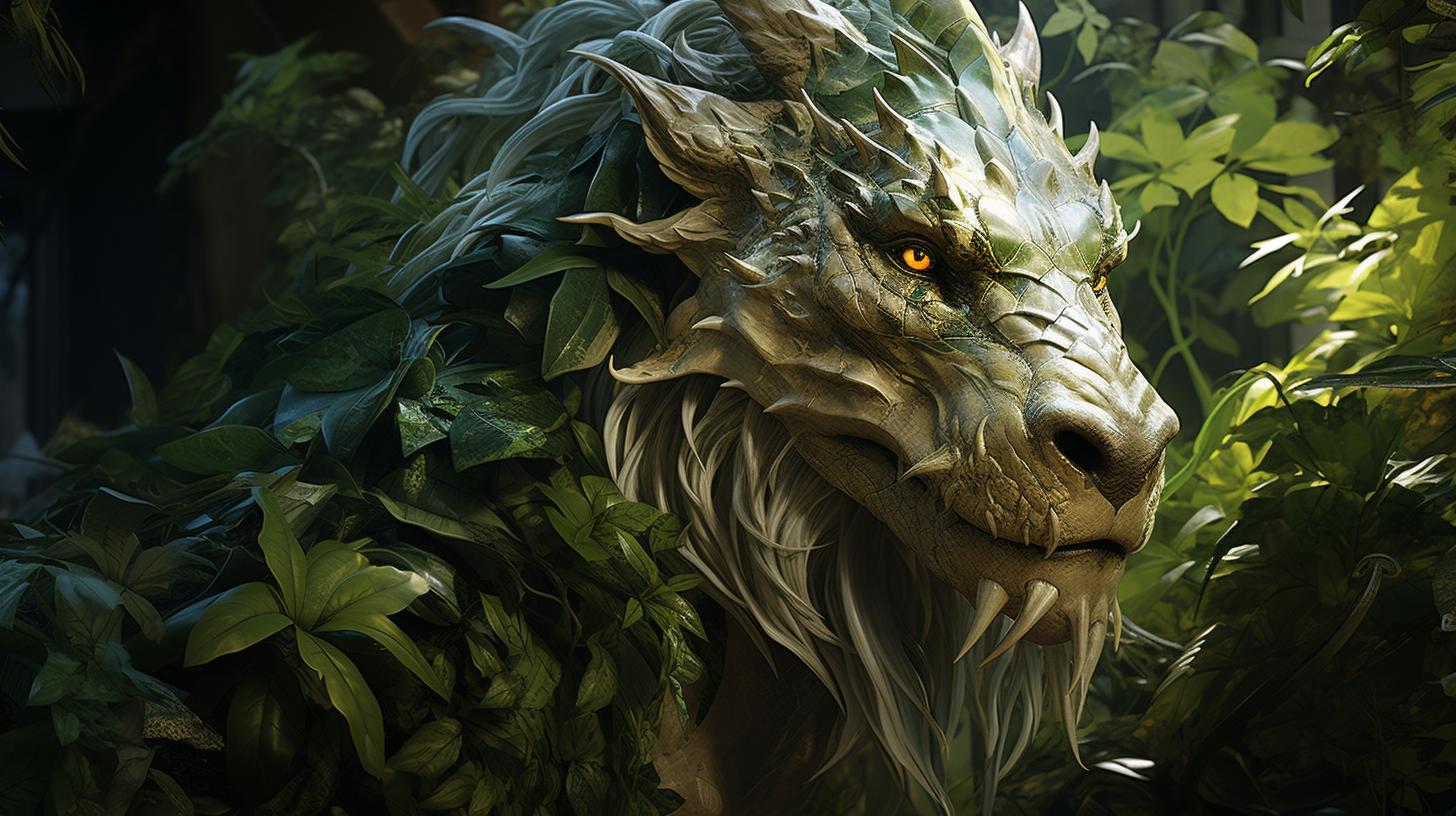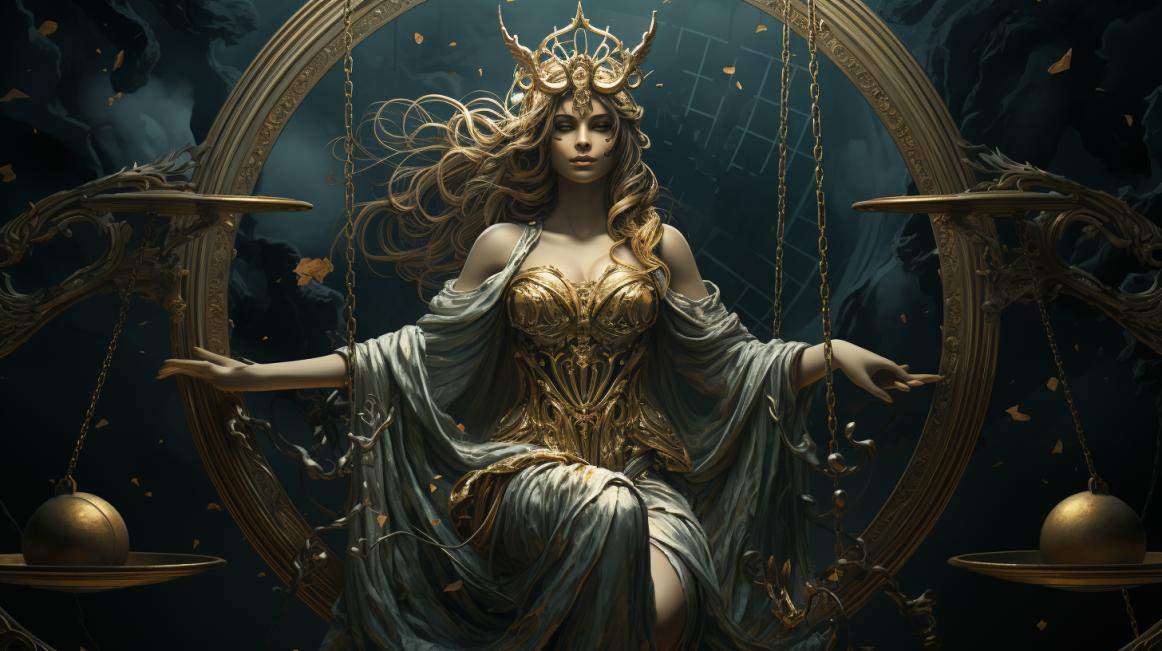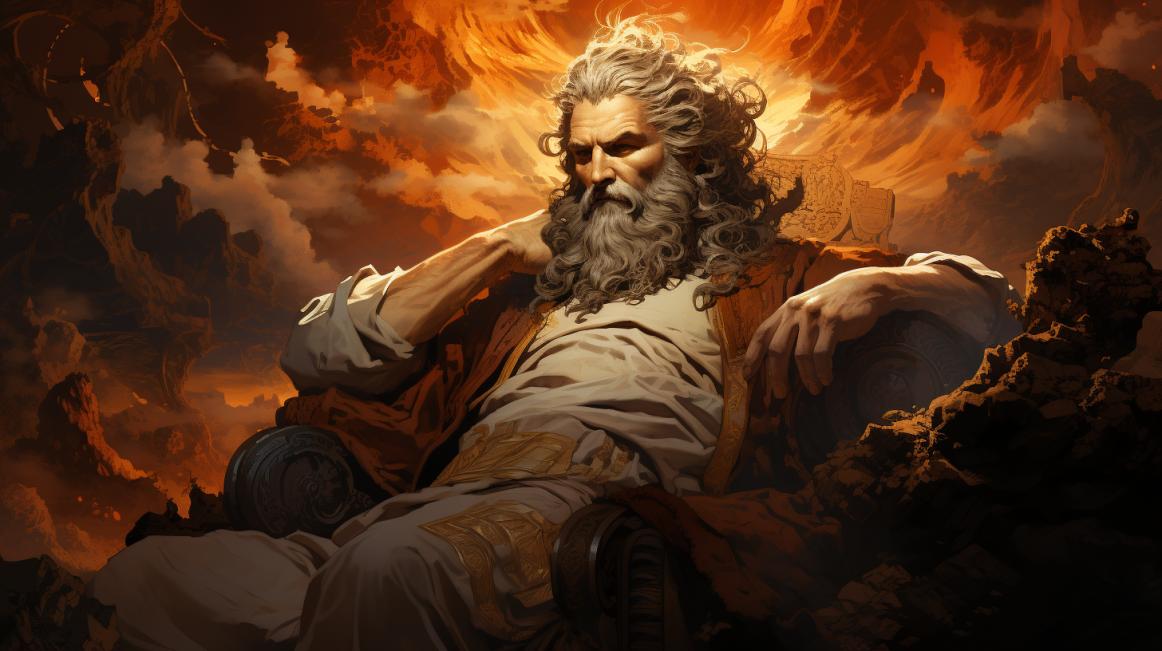‘Calydonian Boar in Greek Mythology: A Legendary Beast to be Tamed’
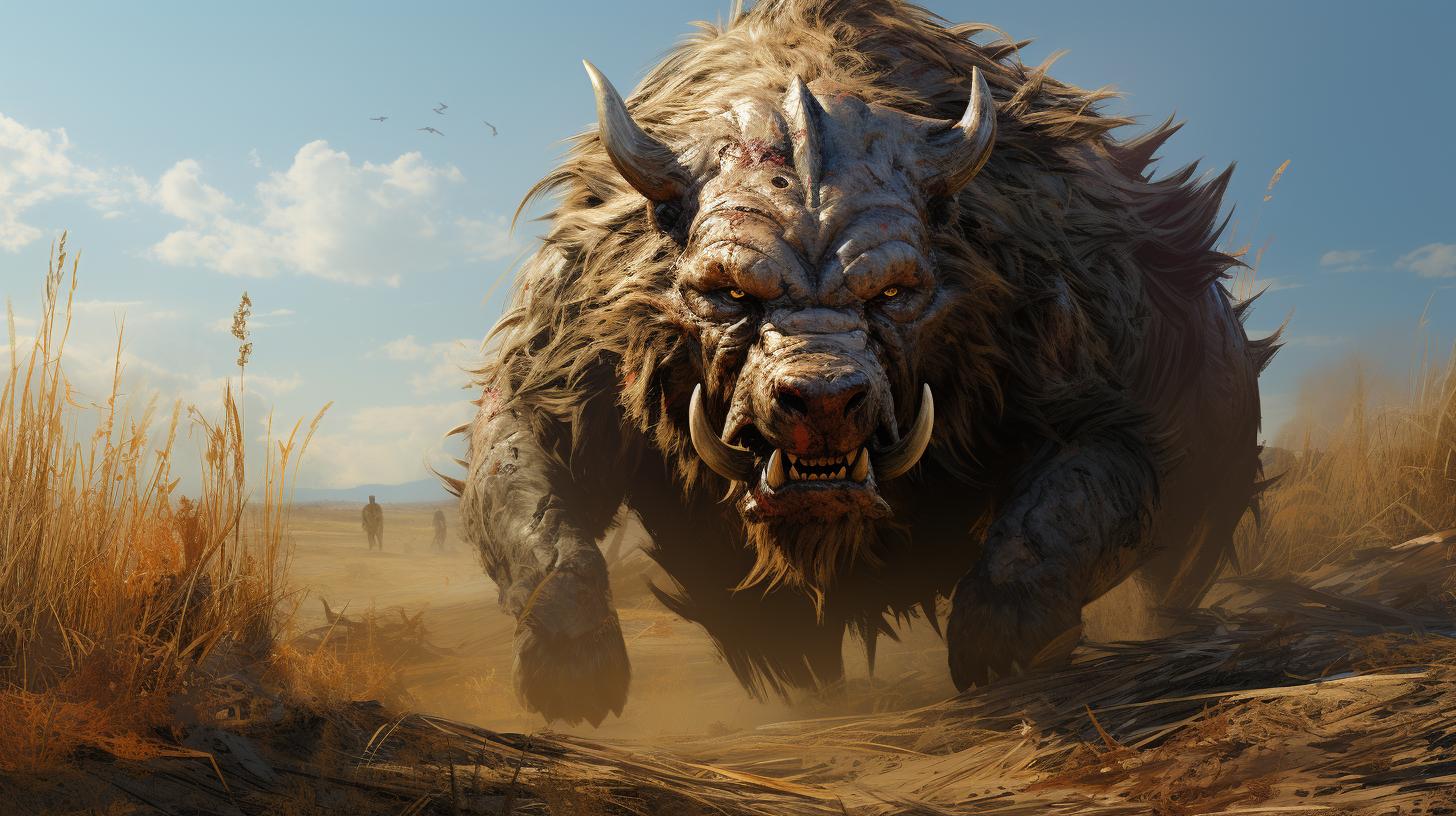
The Calydonian Boar, a legendary creature from Greek mythology, wreaked havoc upon the land of Calydon as punishment for King Oineus’ failure to offer the initial harvest fruits to Artemis. To combat this monstrous threat, a gathering of renowned Greek heroes, led by Meleager, embarked on a perilous hunt.
This article provides an overview of the Calydonian Boar, explores the heroic endeavors in hunting it, examines key figures involved, discusses the demise of the boar, and delves into its symbolism and significance.
It also touches upon Hercules’ connection and the boar’s presence in literature.
Overview of Calydonian Boar in Greek Mythology
In Greek mythology, the Calydonian Boar is a legendary creature that holds a prominent place in ancient tales. This ferocious creature was sent by Artemis, the goddess of the hunt, as punishment for King Oineus of Calydon’s failure to offer her the first fruits of the harvest.
The boar’s rampage through the fields of Calydon caused widespread devastation and prompted King Oineus to gather the greatest heroes from all corners of Greece to embark on a daring hunt to slay the beast.
The Legend of the Calydonian Boar
The Calydonian Boar’s origin stems from the mythological tale of Artemis’ wrath against King Oineus. The king’s neglect of offering the appropriate tribute to the goddess ignited her anger, leading to the unleashing of this monstrous creature.
The legend revolves around the heroic endeavors of the assembled hunters and their perilous quest to subdue the boar and restore peace to the land.
Importance of the Calydonian Boar in Greek Mythology
The tale of the Calydonian Boar holds significant importance in Greek mythology for several reasons.
Firstly, it serves as a cautionary tale about the consequences of disrespecting the gods and the ensuing chaos that can result from such actions. Additionally, the hunt for the boar showcases the valor and skill of the Greek heroes, as they come together to face a formidable foe.
The legend also demonstrates the overarching power and influence of divine entities in mortal affairs, as Artemis’ punishment brings about monumental events and tests the mettle of both gods and mortals alike.
The Calydonian Boar Hunt
The Calydonian Boar hunt was a perilous endeavor that brought together a group of Greek heroes in an attempt to vanquish the ferocious beast. Led by Meleager, the expedition faced numerous challenges and employed various strategies to hunt down and capture the mighty boar.
Gathering of Greek Heroes
The call for the hunt summoned renowned heroes from different regions of Greece. These brave warriors, each possessing unique skills and abilities, answered the plea to join forces against the menacing boar.
The gathering of such esteemed individuals set the stage for an epic battle.
Meleager, the Leader of the Expedition
Meleager, son of King Oeneus, assumed the leadership role in the hunt for the Calydonian Boar. Known for his valor and prowess in combat, Meleager’s determination and strategic thinking guided the efforts of the heroic group throughout the perilous expedition.
Strategies and Challenges in Hunting the Boar
The Greek heroes devised various strategies to overcome the formidable boar. Despite their extraordinary skills, they faced relentless challenges while dealing with the boar’s immense strength, speed, and ferocity. The hunt demanded the utmost courage, agility, and resourcefulness from the heroes.
Heroic Feats and the Capture of the Boar
Through a display of exceptional bravery and skill, the heroes engaged in fierce combat with the Calydonian Boar. Each warrior contributed to the pursuit and eventual capture of the beast, showcasing their individual heroism and collective strength.
Their heroic feats in defeating the boar became legendary tales within Greek mythology.
Key Figures in the Calydonian Boar Hunt
The Calydonian Boar hunt brought together a group of renowned heroes from Greek mythology. Each hero played a significant role in the quest to capture and defeat the ferocious boar.
Meleager, Son of King Oeneus
Leading the expedition was Meleager, the valiant son of King Oeneus. Known for his bravery and skill, Meleager guided the heroes with his strategic thinking and fearless determination.
Atalanta, the Fierce Huntress
Among the notable heroes was Atalanta, a formidable huntress renowned for her exceptional archery skills.
Her agility and swift reflexes made her an invaluable asset in the pursuit of the Calydonian Boar.
Castor and Pollux, Twin Brothers and Heroes
Castor and Pollux, inseparable twin brothers, joined the hunt as well. Blessed with incredible strength and unparalleled camaraderie, they fought bravely against the boar, demonstrating their unwavering loyalty to their comrades.
Other Heroes Involved in the Hunt
- Theseus: The legendary hero, known for his courage and intelligence, contributed his skills to the hunt.
- Peleus: The father of Achilles, Peleus showcased his prowess in combat during the intense battle against the boar.
- Idas and Lynceus: These two brothers stood out for their exceptional swordsmanship and unwavering determination to overcome any obstacle.
- Jason: The future leader of the Argonauts, Jason displayed his leadership skills and heroic spirit during the hunt.
The collaboration of these heroes, along with many others, was crucial in their collective effort to subdue the mighty Calydonian Boar and restore peace to the land of Calydon.
Who Killed the Calydonian Boar?
Within the legends of the Calydonian Boar, the question arises as to who ultimately managed to kill this formidable creature. Two key figures stand out for their prominent roles in its demise: Meleager and Atalanta.
Meleager’s Battle with the Boar
Meleager, the valiant son of King Oeneus, played a crucial role in the battle against the Calydonian Boar. Armed with his spear and accompanied by fellow warriors, he fearlessly confronted the beast.
Meleager displayed exceptional strength and cunning, striking the boar repeatedly with precise aim. His contribution proved vital in weakening the creature.
Atalanta’s Crucial Role in the Boar’s Death
Atalanta, the skilled and fearless huntress, also played a pivotal role in the Calydonian Boar’s demise. Her agility and swiftness allowed her to outmaneuver the boar’s deadly attacks. With her keen aim and swift arrows, she struck a crucial blow that ultimately led to the creature’s downfall.
Atalanta’s accurate shot incapacitated the boar, providing an opening for Meleager to deliver the final fatal blow.
Together, Meleager and Atalanta demonstrated their exceptional bravery and skill in the battle against the Calydonian Boar, ensuring its defeat and the safety of Calydon.
Hercules and the Calydonian Boar
Hercules, known for his legendary strength, had a notable connection to the Calydonian Boar hunt. As a renowned hero in Greek mythology, his involvement in this epic quest added to the already impressive roster of warriors.
Let’s delve into his connection to the hunt, the encounter with the boar, and the comparisons and contrasts with Meleager’s pursuit.
Hercules’ Connection to the Boar Hunt
Hercules, being the son of Zeus, shared a divine connection to the Calydonian Boar hunt. He was not part of the initial gathering of heroes but entered the fray later, demonstrating his strength and prowess as a hunter.
His reputation preceded him, and his contributions to the battle against the boar were significant.
Hercules’ Encounter with the Boar
When Hercules confronted the ferocious Calydonian Boar, he displayed his exceptional combat skills. Armed with his mighty club and wearing the invincible Lion’s skin, he engaged in a fierce and intense clash with the monstrous creature.
His determination, combined with his physical might, allowed him to make a remarkable impact in the struggle against the boar.
Comparisons and Contrasts with Meleager’s Hunt
In comparison to Meleager, the leader of the expedition, Hercules brought a different approach to the Calydonian Boar hunt. While Meleager was motivated by a personal vendetta, Hercules joined the quest to showcase his heroic abilities and contribute to the collective effort.
Additionally, Meleager’s internal conflict and familial ties influenced his actions, whereas Hercules approached the hunt with a sense of duty and valor.
Symbolism and Significance of the Calydonian Boar
The myth of the Calydonian Boar holds profound symbolism and carries significant implications.
It delves into themes of divine punishment, hubris, sacrifice, redemption, and moral lessons that resonate throughout Greek mythology.
Artemis’ Punishment and Divine Intervention
Artemis’ decision to send the Calydonian Boar was a form of retributive punishment for King Oineus’ omission in offering her the first fruits of the harvest. This divine intervention highlights the importance of honoring the deities and the repercussions that follow when they are disregarded.
Themes of Hubris, Sacrifice, and Redemption
The narrative of the Calydonian Boar emphasizes the concept of hubris, arrogance in the face of the gods, which leads to calamity. King Oineus’ forgetfulness serves as a cautionary tale, reminding humans of the need for humility and reverence.
Additionally, the heroic quest to hunt the boar showcases the willingness of individuals, such as Meleager, to sacrifice their lives for the greater good, striving for redemption and restored harmony.
Lessons and Moral Implications from the Myth
The myth of the Calydonian Boar offers valuable moral lessons. It teaches the importance of fulfilling obligations and honoring the divine. It warns against arrogance and the dangers of neglecting responsibilities.
Furthermore, it encourages acts of heroism, selflessness, and unity in the face of adversity. The myth serves as a reminder that choices have consequences and the significance of accountability in both personal and collective actions.
Retellings and References in Literature
Retellings of the Calydonian Boar hunt have been widely explored in various forms of literature throughout history. This mythological tale has served as a source of inspiration for ancient Greek epics, as well as depictions found in Roman and modern literature.
Here are some notable examples:
Calydonian Boar in Ancient Greek Epics
- Homer’s Iliad: The Calydonian Boar hunt is briefly mentioned in this epic as a heroic feat of Meleager and his fellow warriors. It serves to exemplify their bravery and valor.
- Apollonius of Rhodes’ Argonautica: This epic poem narrates the story of Jason and the Argonauts, including their encounter with the Calydonian Boar during their quest for the Golden Fleece.
- Ovid’s Metamorphoses: Ovid provides a detailed account of the Calydonian Boar hunt, describing the heroes’ efforts and the important role played by Atalanta in bringing down the formidable creature.
Depictions in Roman and Modern Literature
- Statius’ Thebaid: This Roman epic portrays the Calydonian Boar hunt as a significant event that foreshadows the conflicts and tragedies presented in the story.
- William Morris’ The Life and Death of Jason: This retelling of the myth features the Calydonian Boar as one of the challenges faced by Jason and his companions in their quest for the Golden Fleece.
- Contemporary adaptations: The Calydonian Boar myth continues to inspire contemporary authors, who often incorporate its themes of heroism, sacrifice, and redemption in their works.
These retellings and references showcase the enduring appeal and cultural significance of the Calydonian Boar myth in literature, with each author bringing their own interpretation and artistic flair to this captivating tale.
.

